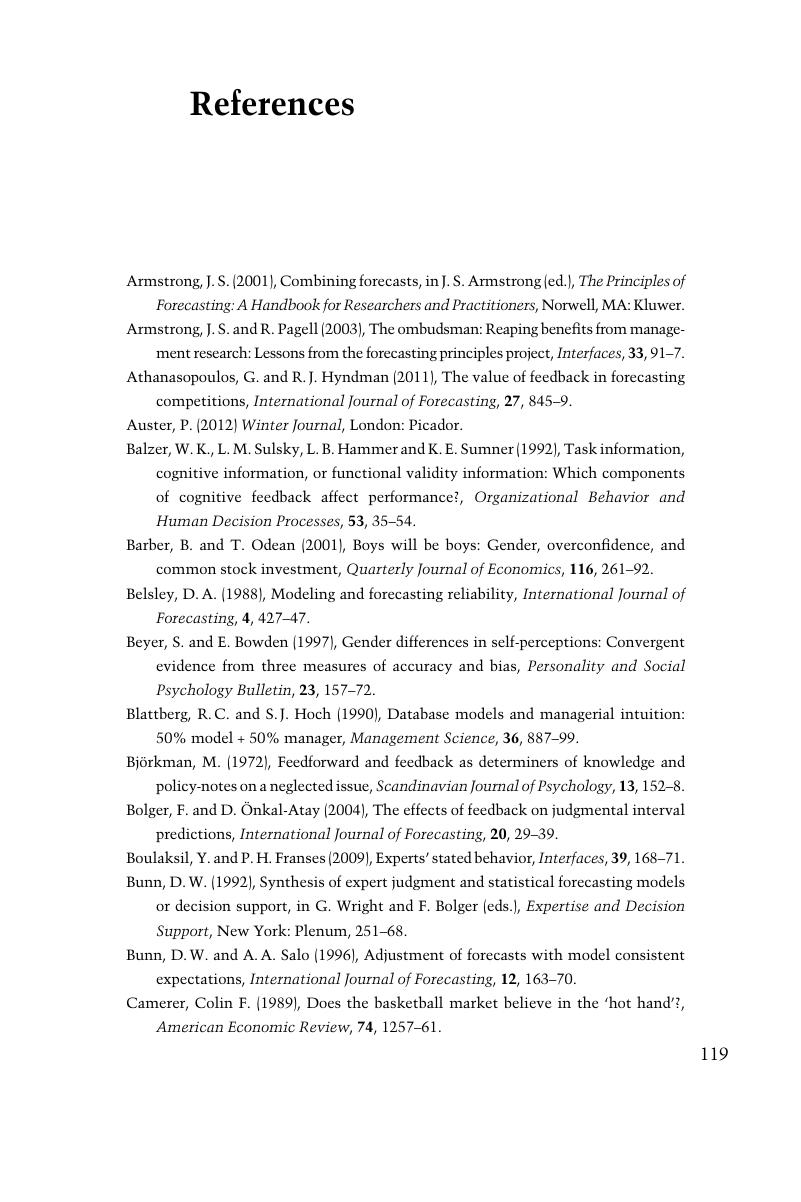Book contents
- Frontmatter
- Epigraph
- Contents
- List of Figures
- List of Tables
- Preface
- 1 Introduction
- 2 Optimal behaviour of experts
- 3 Observed behaviour of experts
- 4 How accurateare expert-adjusted forecasts?
- 5 How can forecasts be improved?
- 6 Conclusion, limitations and implications
- Data appendix
- References
- Index
- References
References
Published online by Cambridge University Press: 05 October 2014
- Frontmatter
- Epigraph
- Contents
- List of Figures
- List of Tables
- Preface
- 1 Introduction
- 2 Optimal behaviour of experts
- 3 Observed behaviour of experts
- 4 How accurateare expert-adjusted forecasts?
- 5 How can forecasts be improved?
- 6 Conclusion, limitations and implications
- Data appendix
- References
- Index
- References
Summary

- Type
- Chapter
- Information
- Expert Adjustments of Model ForecastsTheory, Practice and Strategies for Improvement, pp. 119 - 125Publisher: Cambridge University PressPrint publication year: 2014



